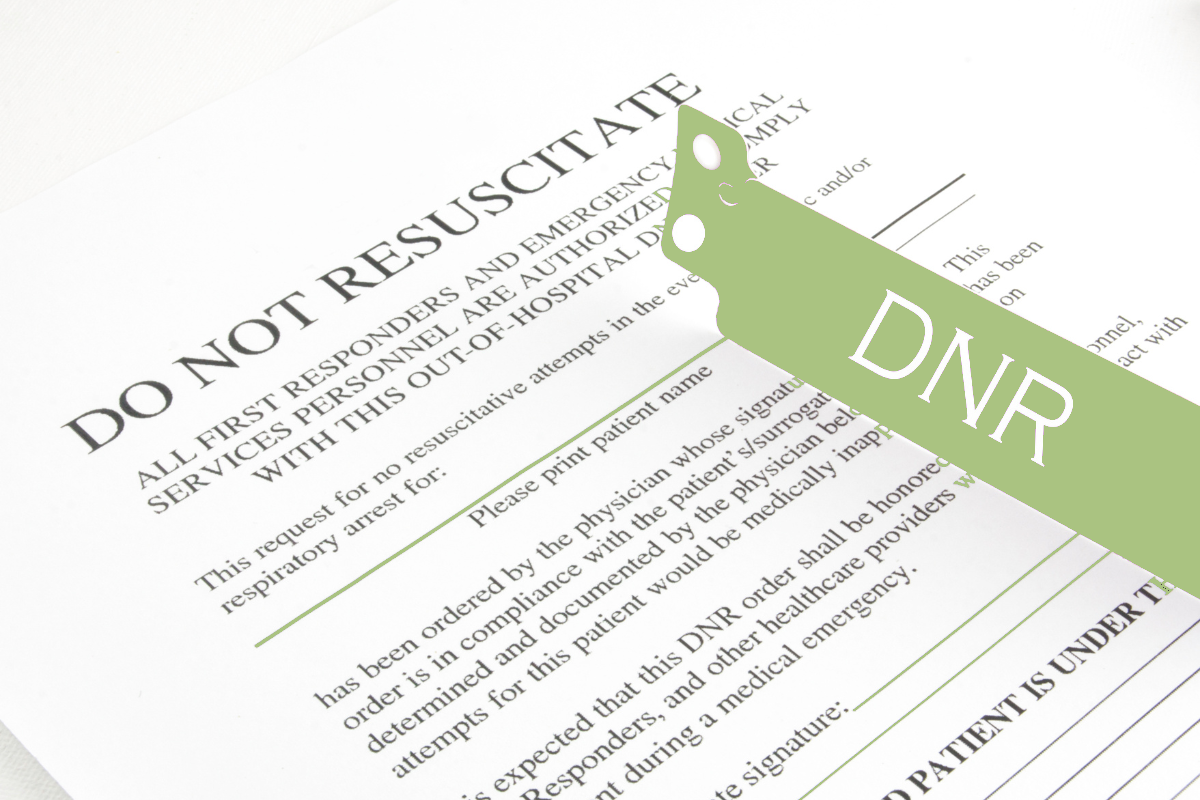What is a DNR Order?
 A do-not-resuscitate (DNR) order is a legal document signed by a patient and their healthcare provider. The DNR order tells other healthcare providers and emergency responders to not perform cardiopulmonary resuscitation (CPR) if your heart goes into cardiac arrest or you stop breathing.
A do-not-resuscitate (DNR) order is a legal document signed by a patient and their healthcare provider. The DNR order tells other healthcare providers and emergency responders to not perform cardiopulmonary resuscitation (CPR) if your heart goes into cardiac arrest or you stop breathing.
Sometimes called an allow-natural-death (AND) order, it is usually put in place by patients with serious health conditions to ensure healthcare providers and emergency responders are aware of your medical wishes.

What interventions are covered in a DNR order?
The DNR order only covers one topic: whether or not to administer CPR if your heart stops beating or you stop breathing. CPR can mean:
- Chest compressions
- Mouth-to-mouth resuscitation
- Use of a defibrillator to send an electric pulse to restore a heartbeat
- Inserting a breathing tube and connecting the patient to a ventilator
Even with a DNR order in place, you may still receive other types of medical treatment and care that don’t fall under the above list.

When is a DNR order appropriate?
Whether or not you sign a DNR order is a very personal decision that should only be made by the patient or their designated healthcare proxy. In most cases, a DNR order is signed when an individual already has a serious medical condition that will lower their chance of recovery even after CPR is performed.
Unfortunately, CPR is not the miracle cure that is often portrayed in movies and on television. According to some studies, less than 40% of people survive CPR when performed in a hospital, and only about 12% of people in cardiac arrest survive after CPR outside of a hospital setting.
Those who do survive CPR often experience brain damage, heart damage, internal bleeding, broken ribs, and injury to their lungs.
Most people who sign a DNR order do so because they are aware that the chances of a full recovery after CPR are lower for them because they already have a serious chronic illness or a diagnosis of a terminal illness.

Setting Up a DNR Order
Speak to your physician if you are interested in signing a DNR order. Once you have signed the form, make sure to communicate your wishes to the people around you who need to know – including your family and other healthcare providers. Make a copy of the DNR order for your hospital chart, your primary care doctor, the person designated as your medical power of attorney, and anyone else who provides care to you. You can also post a copy on your refrigerator or near your bed so emergency responders are notified if they are called to care for you in an emergency.
You can change your mind and revoke a DNR order at any time. If you decide to revoke your DNR order, destroy all copies of it and inform family and healthcare providers of the change.
As stated above, a DNR order only covers the narrow scope of CPR. To ensure your full healthcare wishes are known and respected, complete an advance directive which outlines your wishes about medical treatment and care if you are ever incapacitated and can’t communicate your wishes. An advance directive can cover everything from medications you prefer to blood transfusions, dialysis, and feeding tubes.
Crossroads Hospice & Palliative Care provides care and support to patients and families facing serious and terminal illness. To learn more about our services, please call 1-888-564-3405.
If you found this information helpful, please share it with your network and community.
Copyright © 2022 Crossroads Hospice. All rights reserved.




